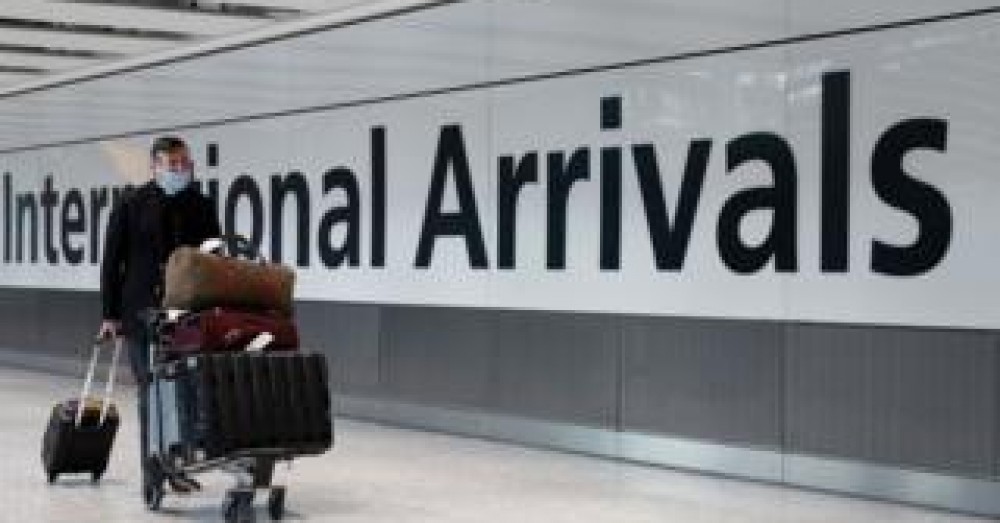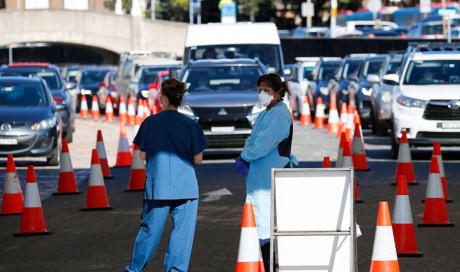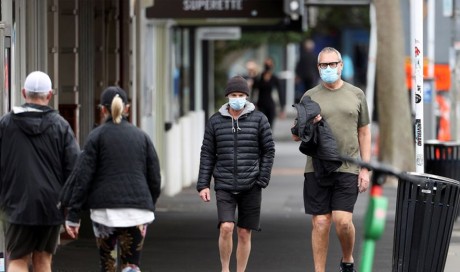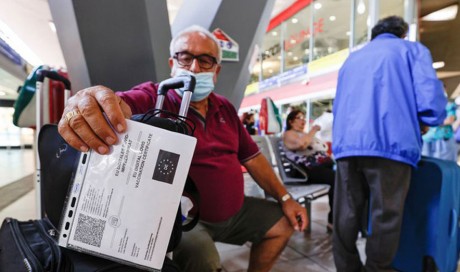Travellers arriving in England, Wales and Northern Ireland from many countries no longer have to self-isolate for two weeks.
The quarantine requirements are being relaxed for arrivals from 59 countries and 14 British overseas territories.
Scotland had said it will continue to quarantine passengers from countries with a higher prevalence of Covid-19 than its own.
Foreign Office advice against taking a cruise holiday remains in place.
From Friday morning, people arriving from Spain, France, Italy, Belgium, Germany and 54 other countries will no longer have to spend 14 days in quarantine when they arrive in England, Wales or Northern Ireland.
But people who arrived from those countries at an earlier point in the last two weeks will still be expected to complete their period of isolation.
Scotland, which from Friday has also made face coverings mandatory in shops, has chosen a different list of exemptions with only 39 countries.
It means people arriving in Scotland from places such as Spain and Serbia will still face quarantine rules.
First Minister Nicola Sturgeon said the "difficult decision" was necessary to protect Scotland from a resurgence of the virus and warned travellers not to try and bypass the restrictions by flying to airports in England.
The quarantine rules were introduced in June, with travellers asked to nominate an address where they would self-isolate, with fines of up to £1,000 for those who failed to comply.
As some international travel to and from the UK is opened up, the Foreign Office is continuing to warn against journeys on cruise ships, however.
Warnings against cruise ship travel were first issued for over-70s in March before the Foreign Office began advising against all but essential travel.
A spokesman said the decision not to change the advice against cruises is based on "medical advice from Public Health England", but it would "continue to review" the position.
Carnival, the world's largest cruise company which owns P&O and Cunard, said it had already put its voyages on hold until the autumn and it will not resume them until "rigorous protocols" were agreed with government and put in place.
Meanwhile the World Health Organization has warned that "in most of the world the virus is not under control" and the pandemic is "getting worse".
Dr Tedros Adhanom Ghebreyesus, the WHO's director-general, said: "The pandemic is still accelerating. The total number of cases has doubled in the last six weeks."
He said countries have now reported more than 11.8m cases of Covid-19 and 544,000 deaths.
But with infections in the UK falling, the government and devolved administrations continue to ease coronavirus restrictions.
In England, grassroots sport will start to return from this weekend, while beauty salons can reopen on 13 July and indoor gyms and swimming pools on 25 July.
Open-air concerts and theatre performances are also allowed to take place from this weekend in England, as long as they have a "a limited and socially distanced audience".
Children's playgrounds and community centres in Wales will be able to reopen from 20 July.
And Northern Ireland has brought forward changes to lockdown restrictions, allowing indoor fitness studios and gyms to reopen on Friday, along with bingo halls, amusement arcades and cinemas.
Indoor weddings and baptisms can also resume, ministers decided.
Scotland has begun to allow people to visit each other indoors and to allow overnight stays, as well as setting dates for reopening bars and restaurants, hairdressers and barbers, and the tourist industry.
Share This Post















